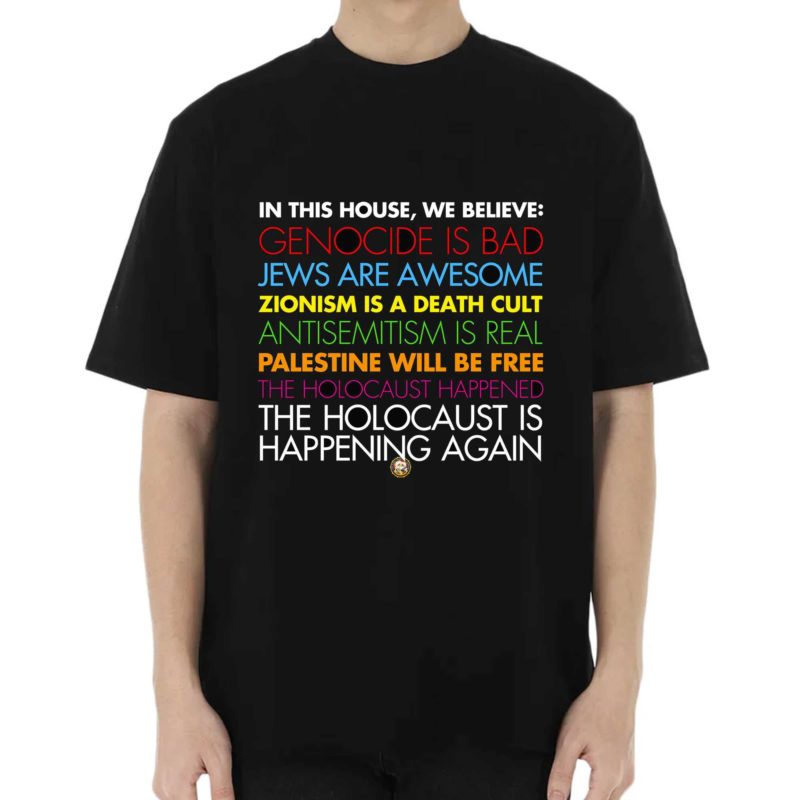No products in the cart.
Uncategorized
Stand for Justice with the “In This House We Believe Genocide is Bad Jews Are Awesome” Shirt

Stand for Justice with the “In This House We Believe Genocide is Bad Jews Are Awesome” Shirt
In a world where it’s more important than ever to stand for what’s right, our “In This House We Believe Genocide is Bad Jews Are Awesome” shirt is more than just a piece of clothing—it’s a statement of solidarity and respect. This powerful shirt represents a commitment to justice, equality, and the celebration of Jewish culture and people. Whether you’re wearing it to a rally, a community event, or just around town, this shirt speaks volumes about your values. Stand up for what’s right and spread a message of love and unity with every wear.
Show the world where you stand—grab yours today!
‘The Genocide in Gaza is Part of an Israeli Ethnic Cleansing Plan,’ Says Palestinian Activist
Rodrigo Durão Coelho | Translated by Ana Paula Rocha | Brasil de Fato | São Paulo | July 29, 2024, 2:45 PM
Palestinians walk through destruction: “Gaza is becoming uninhabitable due to water contamination, severe electricity shortages, widespread famine, and overwhelming despair” – Eyad BABA / AFP
“The tactics may have changed, but the goal remains the same,” said former Israeli Prime Minister Ariel Sharon in the 1980s. “Today, you can’t load people onto trucks and expel them across borders as was done in 1948. But you can create conditions that will convince them to leave.” This statement, though couched in euphemistic language, outlines a strategy that has been systematically implemented by Israeli governments, especially in recent decades.
This is the perspective of Jamal Juma, a Palestinian activist who recently spoke with Brasil de Fato. Born near Jerusalem in 1962, Juma has witnessed the key events of the Israeli occupation firsthand, from the first intifada in the 1980s and the near peace agreement known as the Oslo Accords in the 1990s, to the second intifada, the aftermath of 9/11, the house arrest and subsequent death of Palestinian leader Yasser Arafat, the violent clashes between Fatah and Hamas, the blockade on Gaza, and the series of massacres that have led to what he describes as the ongoing genocide.
During his visit to the Brasil de Fato newsroom in São Paulo, Juma discussed a range of topics: his childhood and the early experiences of violence he endured, the differing yet equally desperate realities under occupation in various Palestinian territories, the political landscape within Israel, and what the international community can do in response. Read the full interview below [in English].
